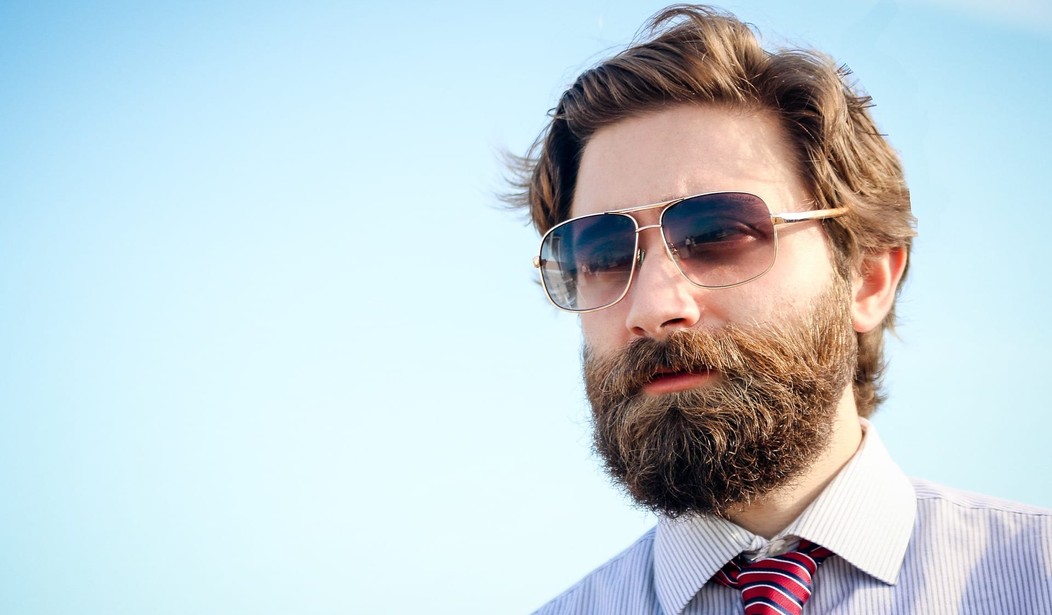As Americans hunker down to stop the spread of the coronavirus pandemic, many men are taking a break from shaving. Beards are in among millennials, and it seems they are particularly popular when men are staying home in quarantine. Their popularity raises a disturbing question: does facial hair aid in the spread of diseases like COVID-19?
Throughout the 20th century, Americans turned against beards, especially during pandemics, as Vox’s Michael Waters reported. In the early 1900s, New York City was wracked by a tuberculosis hysteria. New Yorkers began demanding that public school students be tested for fever every morning, as Frank M. Snowden recounted in Epidemics and Society. William H. Park, a doctor at the New York Board of Health, banned bearded milkmen, announcing in 1901 that “there is real menace to the milk if the dairyman is bearded.”
“The beard, particularly when damp, may become an ideal germ carrier, and on an unclean man would have great facility for the transmission of disease,” Park added.
This narrative was popular among medical staff at the time. In the 1890s, nurses started shaving patients’ beards to prevent them from spreading disease, citing studies suggesting that beards could entrap disease-laden spit. In 1902, a syndicated newspaper editorial urged men to “Shave The Microbe Infested Beard,” claiming that “doctors who wear beards report greater mortality among their patients than those who do not.” Yet the author hopefully noted that beards were becoming less popular in Manhattan.
Beards were declining in popularity leading up to the Spanish influenza epidemic of 1918, when they were viewed with suspicion yet again.
In February, some news outlets focused on a 2017 CDC infographic showing that certain types of facial hair intrude on medical face masks. The CDC was not commenting on the cleanness of beards, nor suggesting facial hair would spread the coronavirus, but the graphic did raise questions in some circles.
As you, dear reader, have likely surmised by the beard I proudly sport in my profile picture, I am not writing this article in order to advocate against facial hair. Luckily for me, studies have shown that there is no reason to fear that beards spread disease.
In terms of bacterial shedding, “there is no difference in bearded and non-bearded men,” Carrie Kovarik, an associate professor of dermatology and medicine at the University of Pennsylvania, told Vox. Her study found that bearded people might even carry fewer germs than their baby-faced counterparts. Ironically, shaving might spread diseases by opening up space on the skin for bacteria to congregate.
“Of course these anti-beard ideas are wrong, but the idea that beards are ‘dirty’ and harbor germs is a staple of 20th and 21st century thought, especially the early 20th century,” Christopher Oldstone-Moore, a professor of history at Wright State University and a self-described beard historian, told Vox.
Millennials have jettisoned the anti-beard prejudices of previous generations, and older men have joined in the facial renaissance.
Naturally, beards can be inconvenient at times. They make snorkeling difficult and they don’t mix with every kind of face mask. Some first responders, doctors, and other medical professionals have shaved their faces to make room for respiratory masks.
That said, there is no medical or hygienic reason to reject facial hair. It’s time to put this misinformation to bed.
So those of you foregoing shaving during quarantine, never fear. Wear those beards with pride!
Tyler O’Neil is the author of Making Hate Pay: The Corruption of the Southern Poverty Law Center. Follow him on Twitter at @Tyler2ONeil.
Editor’s Note: Want to support PJ Media so we can keep telling the truth about China and the virus they unleashed on the world? Join PJ Media VIP and use the promo code WUHAN to get 25% off your VIP membership.









